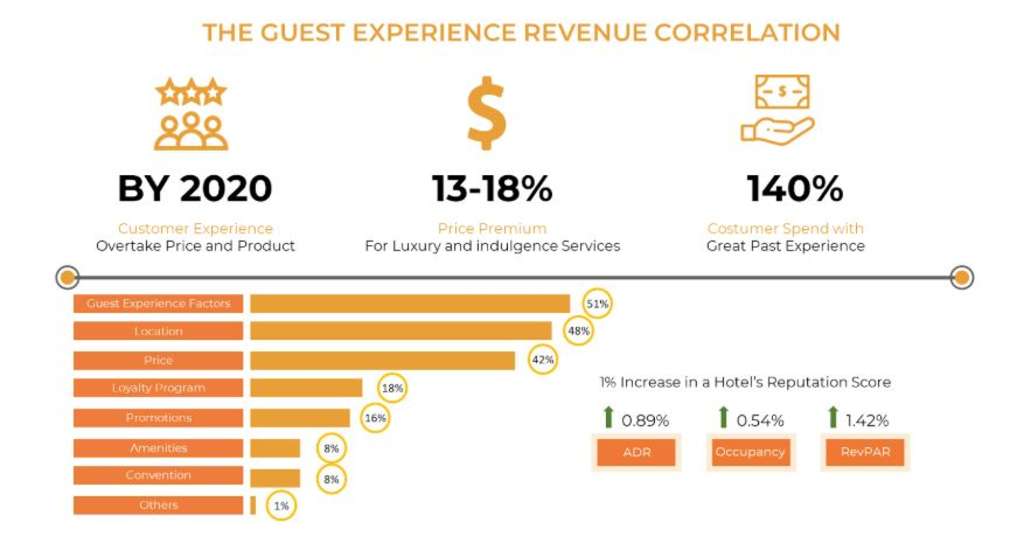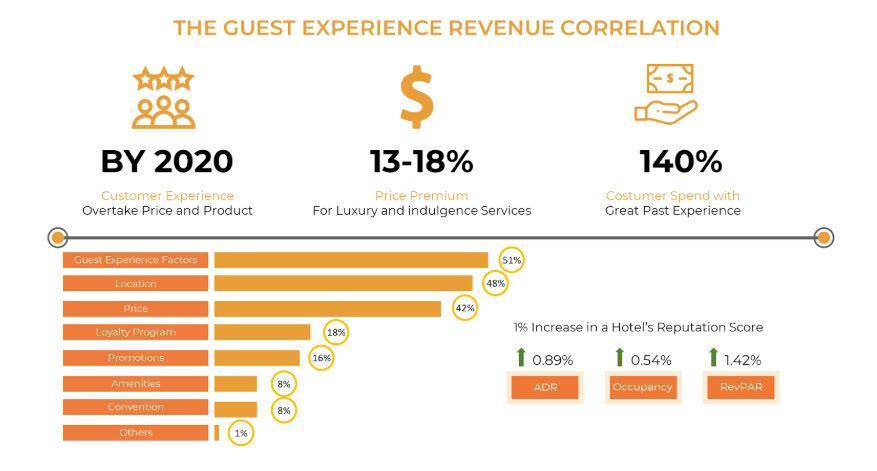Watch your Language!
Content in the new hospitality landscape
There was a time when "travel accommodation" and "hotel" were virtually interchangeable. Sure, there were vacation rentals, but at a smaller scale and not readily available on the major travel booking platforms. With the rise of Airbnb and other alternative accommodation platforms, this is no longer true. There is now a myriad of options available to travelers wishing to explore the world.
A more appropriate term for what these new platforms offer is "alternative accommodation" rather than "vacation rental". In the U.S. top destination cities of Boston, Chicago, Denver, Houston, Los Angeles, Miami, Nashville, New York, San Francisco, and Seattle there were 51 Airbnb properties listed in its first year of operation. By 2017, that number had was well over 50,000 and there are currently 666,000 property listings in the United States by December 2019. [1]
When you look closer at the accommodations offered, there is often an entire house, an apartment, or someone renting a spare bedroom. Consider for a moment the difference in experience for the following accommodations: studio apartment, houseboat, cottage, shared room, yurt, guest suite, and camp space. If you're traveling with children, knowing that you'll be staying on a boat may be critical, and a yurt may not be the best option for those with an aversion to bugs. But likewise, finding yourself in a motel room off the interstate on your hiking trip might just ruin that trip. Different accommodations provide different experience and caters to different audience. As such, your language should match the experience that you want to deliver.
Content is King…again!
Travel, regardless of the purpose, is often a large investment of time, money, and energy for the traveler. Arming the traveler with accurate, relevant, and digestible information is key to ensuring a positive experience that meets the traveler's expectation. I would also argue that in its simplest form, the formula for a good review is that expectations are equal to experience. Most of us in the travel industry know the importance of reviews and their impact on business and revenue.
A Walker study found that by the year 2020, customer experience would overtake price and product as the key brand differentiator. Customers are willing to pay a price premium of up to 13% (and as high as 18%) for luxury and indulgence services, simply by receiving a great customer experience. The Harvard Review claims that customers who had great experiences in the past with a company will spend 140% more compared to people who had poor experiences. Therefore, clearly there is a correlation between the quality of the experience and revenue, which holds true in the hospitality industry. A study from Cornell School of administration shows that 1% increase in hotel's reputation score increases ADR, Occupancy and RevPAR by 0.89%, 0.54% and 1.42% respectively.
Hence, for a branded or independent hotel, communicating and setting expectations via content with a prospective guest on its own website is not hard, as the brand or property has complete control. But as soon as third-party distribution becomes a factor, control can be hard to maintain. Consider that we have only so far talked about one descriptive content label; accommodation type. When you considered the full breadth of descriptions to update and manage, you can quickly feel like it's a daunting challenge and a never-ending battle to maintain accuracy.
To make matters worse, the rapid changes in the distribution landscape complicates the management of accommodation content exponentially. Consider new entrants, acquisitions and changes in distribution technology—all impact content. That's all before we consider making that content available in languages of desired source markets.
Taking on the King
So how do you manage expectation setting across the entire distribution ecosystem? The first step is of course an enticing, yet accurate description of your property and rooms. Being knowledge about industry terms for rooms, amenities and services helps as those are terms travelers are familiar with and can more easily understand what your property has to offer. Again, it helps with expectation setting. Make sure you offer as much information as possible as 78% of online consumers say they find product information important to their buying decision.
Second, you need to transfer all this information into a database that is specifically built for hospitality content to be accurately distributed to any platform. The taxonomy needs to be built with hospitality accommodation and distribution in mind. This is often where some hospitality professionals stumble. At times, they fail to anticipate the downstream implications and hence the importance of a robust content management system that is intended for the complexities of hospitality distribution. It's also where I recommend seeking some help. Managing property information and images is extremely time consuming. Especially so in an industry seeing constant change. With the emergence of personalization and attribute based pricing - even more granular content is added to the mix. In the Amazon era, consumers expect to get served up relevant content or offerings based on what they're looking for. Poorly managed content makes this impossible.
We have standards
Our industry is in need of standards to address the new diversity of accommodation providers. Most importantly for travel consumers to make informed choices. DHISCO has been anticipating this lodging convergence recognizing the importance of structure and standards, foreseeing the personalization revolution. We knew that there was only one way to bring some order to an industry that still used extranet and spreadsheet content distribution. We knew it was only a matter of time until the scale tipped toward alternative lodging. If we could manage the largest inventory of hospitality product information and imagery in the industry, both traditional and non-traditional, we would gain wisdom from the compilation, breadth, and depth of content.
That gain was the closest thing to an industry standard for diverse lodging content that we have seen. And that has proven to be extremely valuable to hospitality providers as well as travel sellers such as OTAs, GDSs, and TMCs. Up until recently we had been extremely confident in a bet on content that was made years ago. But as alternative accommodations came on the scene, we realized that this content would have to sit on the same proverbial shelf as traditional hospitality content, contrasted and compared during the shopping process. We knew this would be the ultimate test to our structure, to our speed, and our ability to merge alternative accommodation information onto platforms built for traditional accommodation. That test now has a name.
Monaker is the moniker.
Monaker [2] approached RateGain with the task of loading and managing their vacation rental inventory and increasing distribution through RateGain/DHISCO partners. We knew this would be the biggest challenge our content management system and DHISCO had seen to date. The results? In three days, we loaded 100,000+ properties and over a million images. But we weren't done. We then replicated each property and loaded it in four languages — totally error free.
"DHISCO Content is an offering which is as unique as your guest. It provides a powerful content database with automatic update capabilities, an end-to-end descriptive, multi-lingual and digitalized product line, with flexible APIs that offer options for content via push or pull models. With DHISCO content, within just a couple of months, Monaker Group has already on boarded an initial 100,000+ of their approximately 3 million properties with images and content in 4 different languages namely Spanish, French, German and Italian apart from English." Says Tim Sikora, Chief Operations and Chief Information Officer at Monaker Group.
While I couldn't be prouder of our team, the systems and infrastructure we have built, we are ready for the next challenge. Get in touch if you have a challenge in content management and distribution you'd like solved!
[1] https://ipropertymanagement.com/research/airbnb-statistics
[2] https://rategain.com/press-release/monaker-group-partners-with-rategain/
About RateGain
RateGain Travel Technologies Limited is a global provider of AI-powered SaaS solutions for travel and hospitality that works with 3,200+ customers and 700+ partners in 100+ countries helping them accelerate revenue generation through acquisition, retention, and wallet share expansion. RateGain today is one of the world's largest processors of electronic transactions, price points, and travel intent data helping revenue management, distribution and marketing teams across hotels, airlines, meta-search companies, package providers, car rentals, travel management companies, cruises and ferries drive better outcomes for their business. Founded in 2004 and headquartered in India, today RateGain works with 26 of the Top 30 Hotel Chains, 25 of the Top 30 Online Travel Agents, 3 of the Top 4 Airlines, and all the top car rentals, including 16 Global Fortune 500 companies in unlocking new revenue every day. For more information, please visit www.rategain.com.
Ankit Chaturvedi
AVP-Marketing
+91 9654502760
RateGain Technologies Limited

